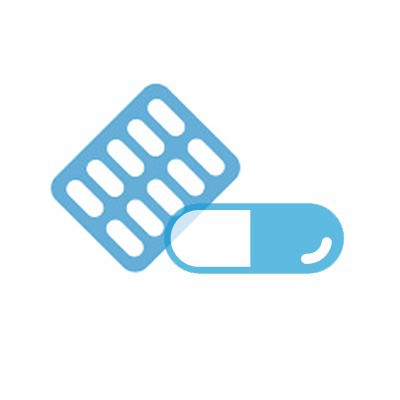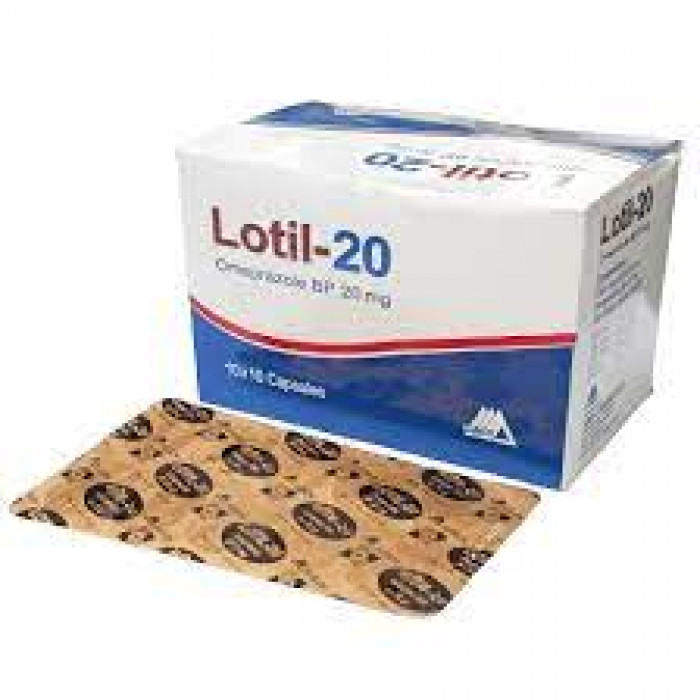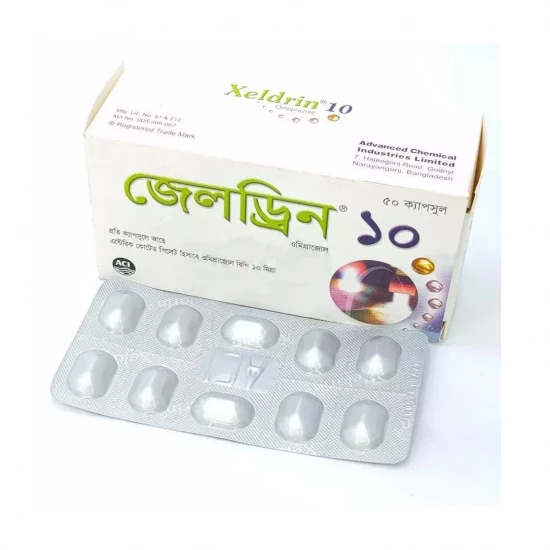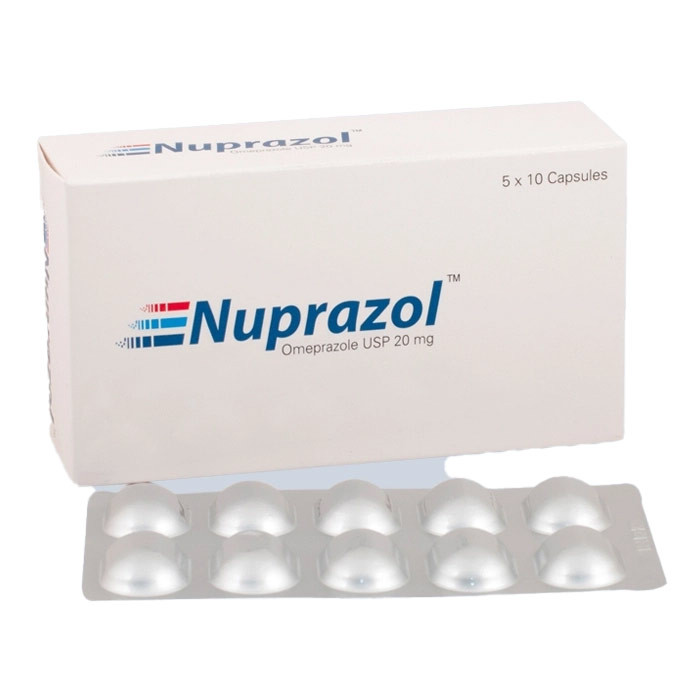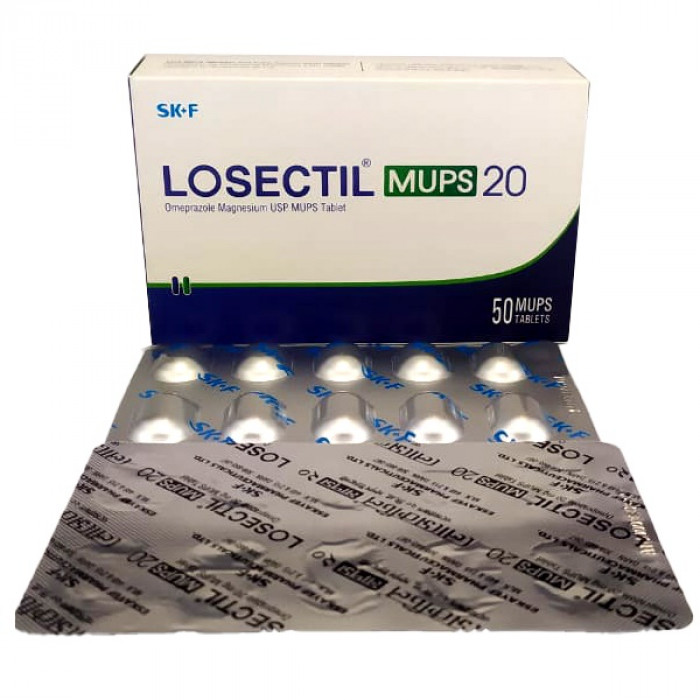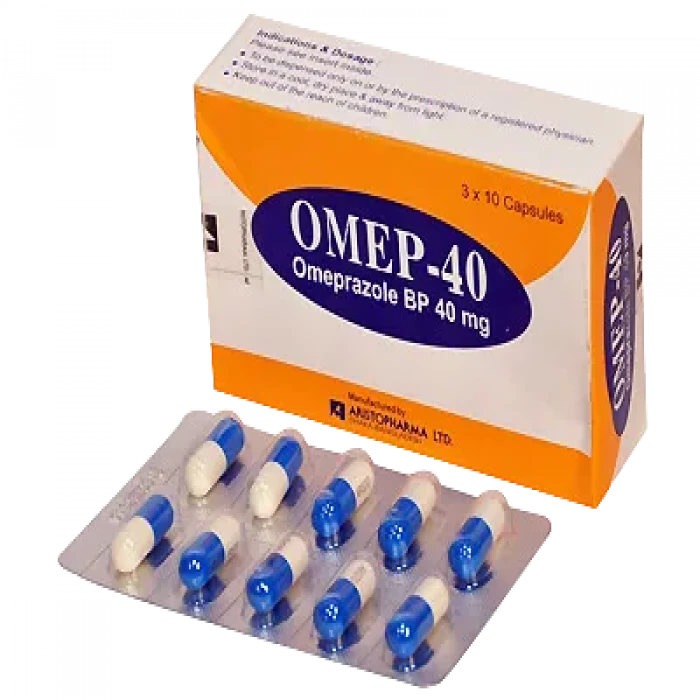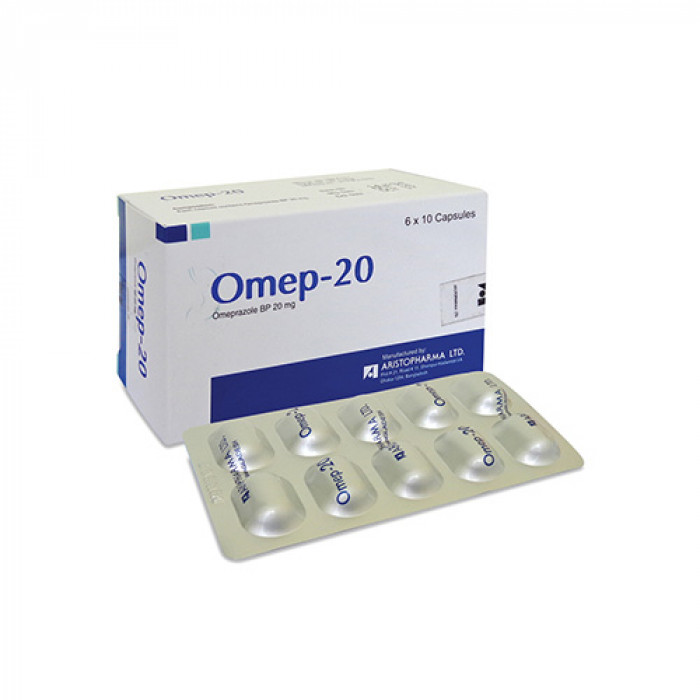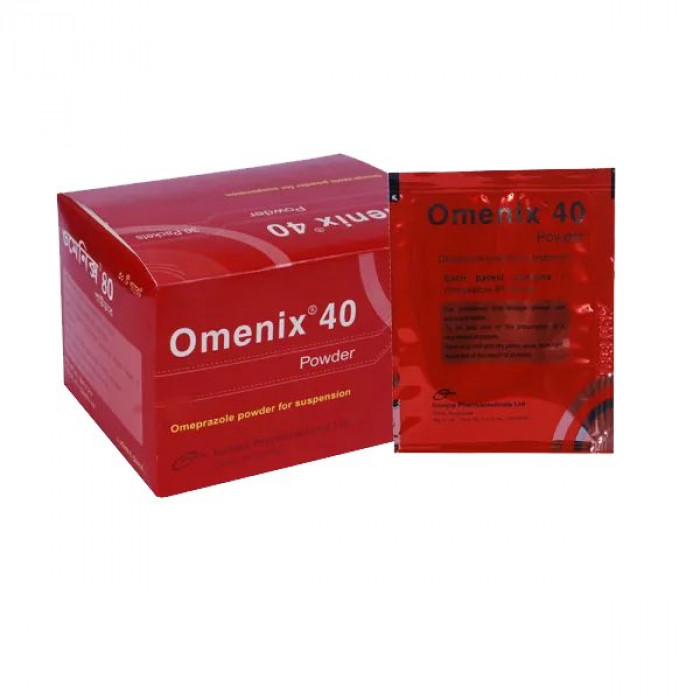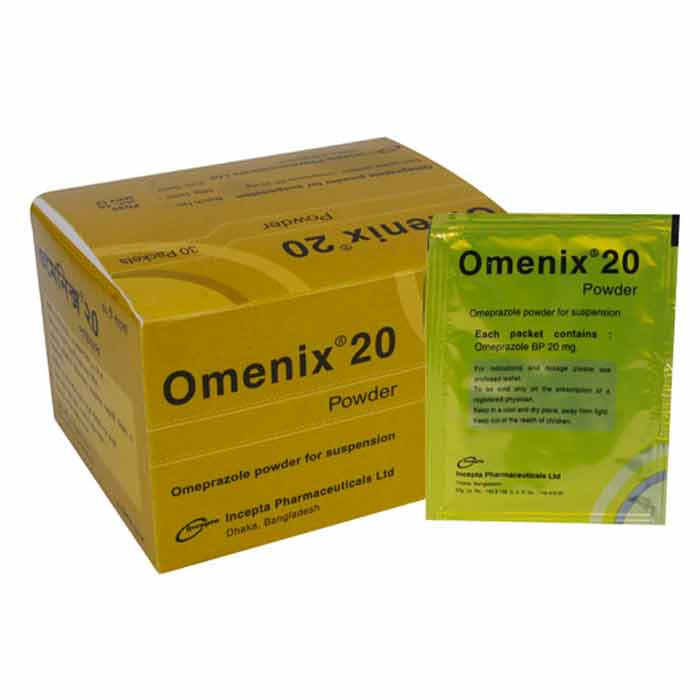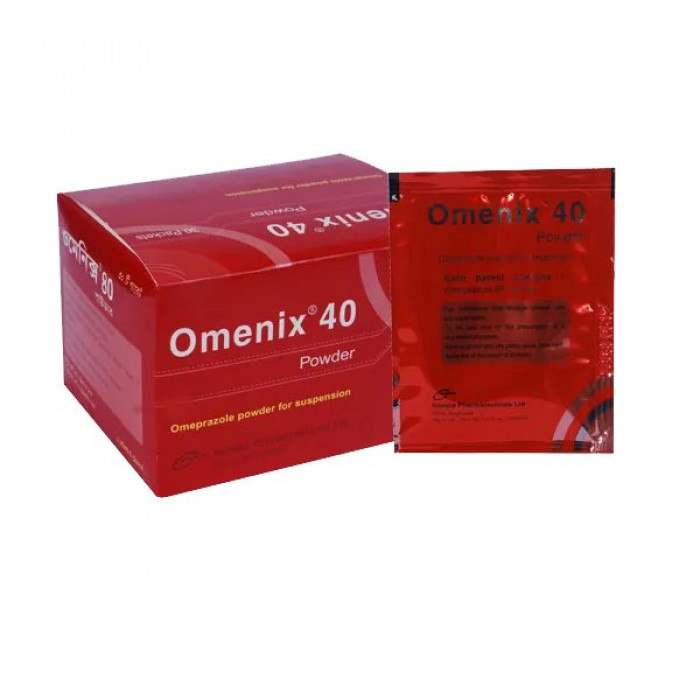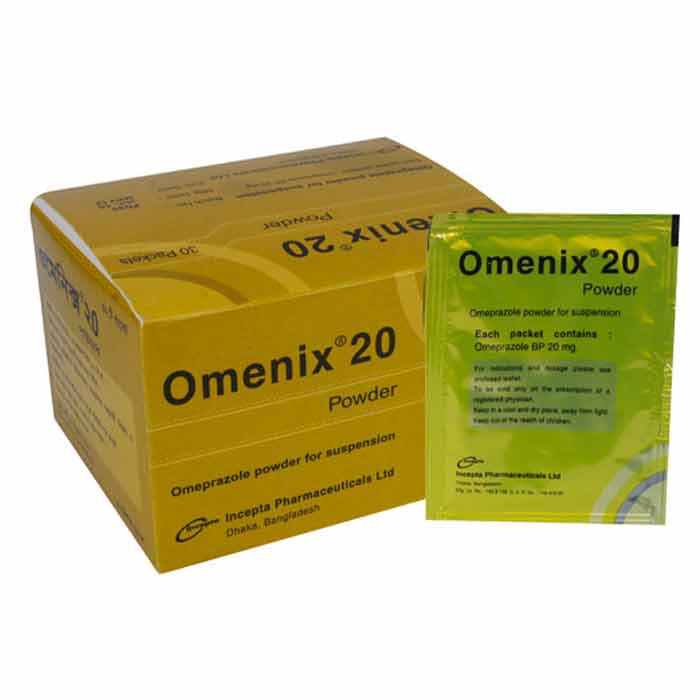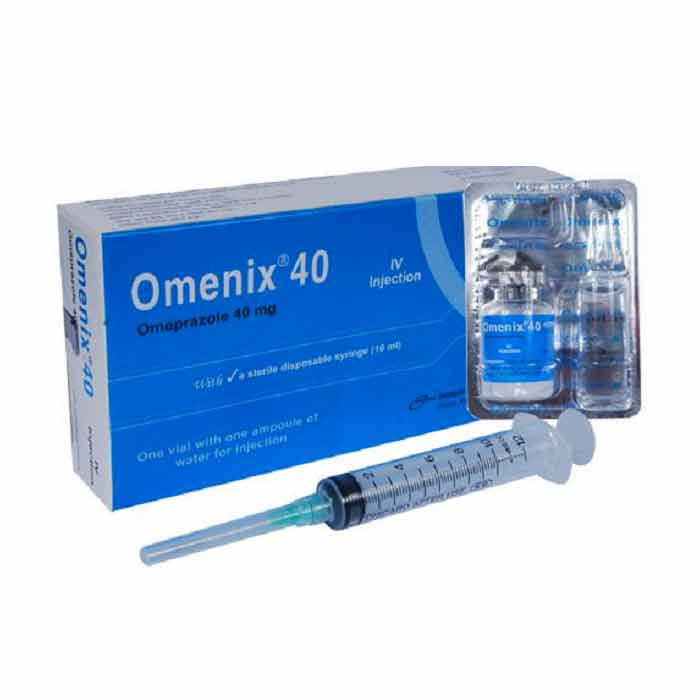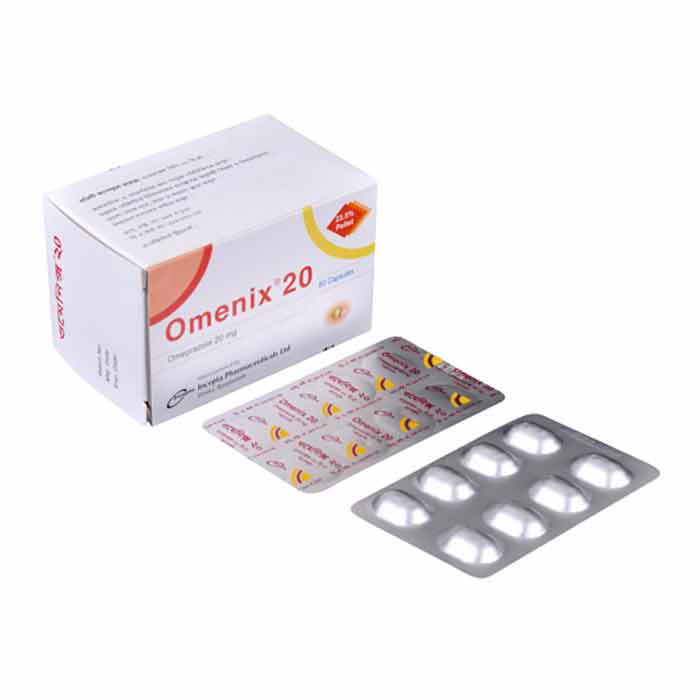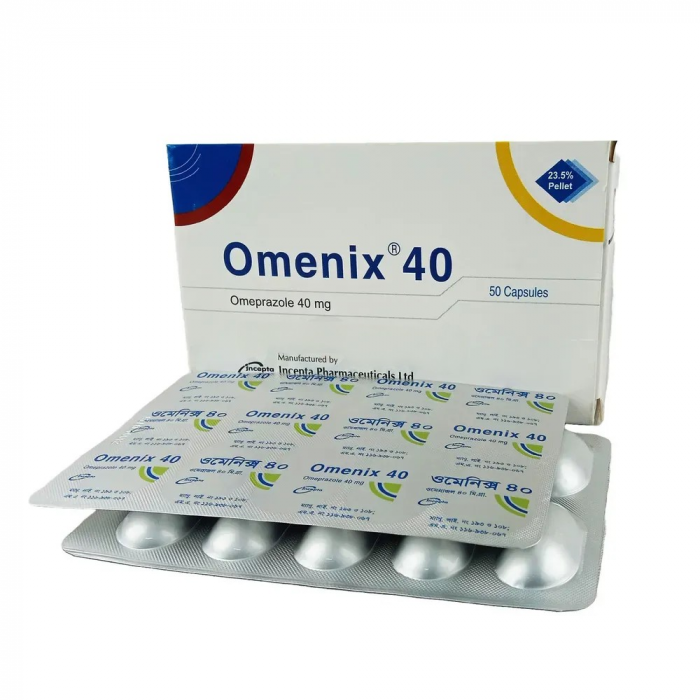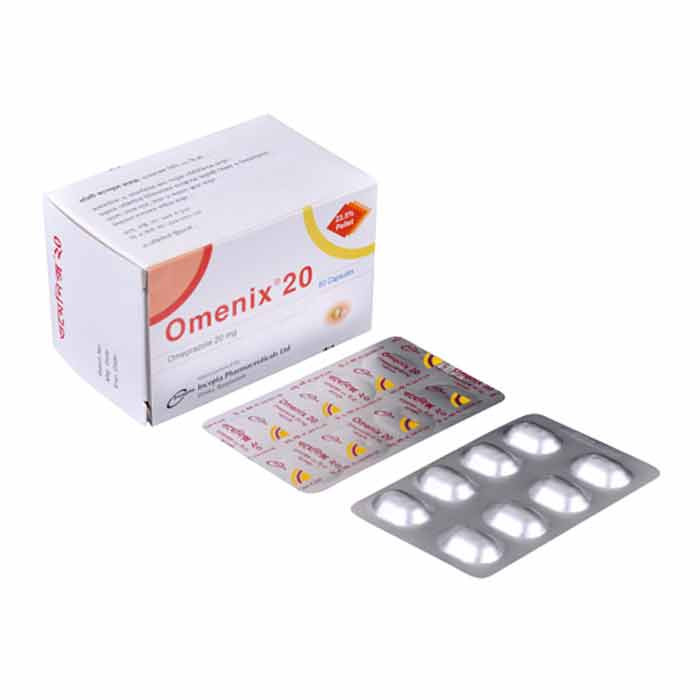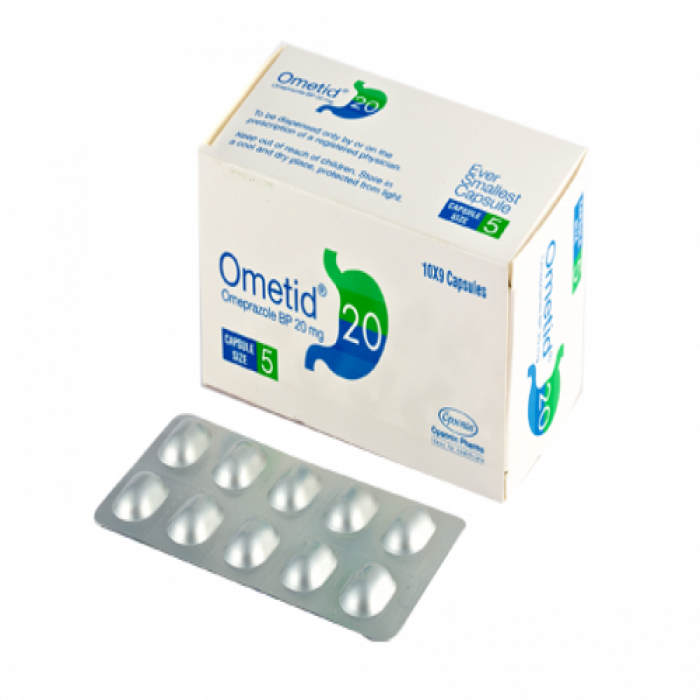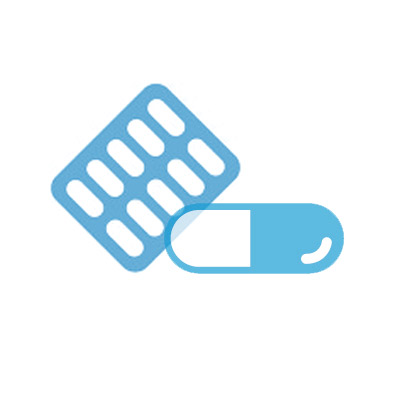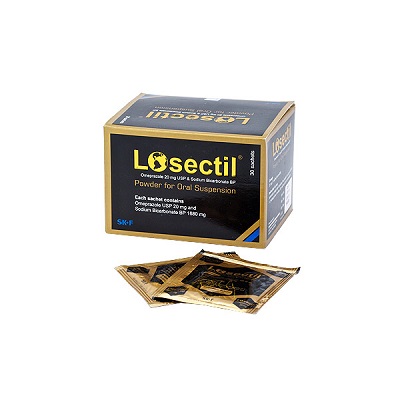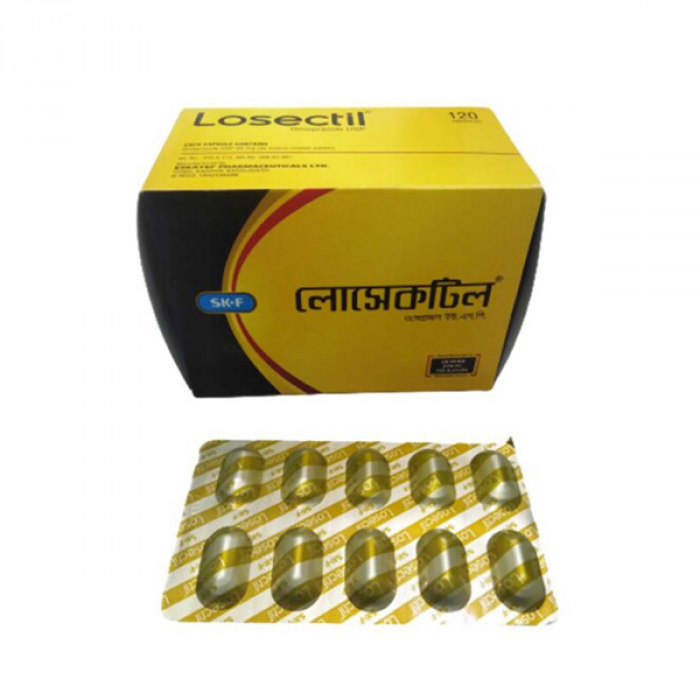

✔ 100% Authentic Product
👁️ Currently Viewing 2900
Seclogen 20mg Capsule 10pcs
Omeprazole 20 Capsule is a medication classified as an anti-ulcer agent, primarily used to alleviate conditions associated with excessive stomach acid production. It is commonly prescribed for the treatment of stomach and duodenal ulcers, gastroesophageal reflux disease (GERD), and Zollinger-Ellison syndrome, all of which are attributed to elevated levels of stomach acid.
Discount
Price: ৳ 49
MRP:
৳
50
2%
Off

100% Genuine Products, Guaranteed

Safe & Secure Payments, Always

Fast, Secure & Efficient Delivery

Proper Packaging
 Cash on Delivery - All over Bangladesh
Cash on Delivery - All over Bangladesh Regular Delivery - 12-24 Hours, Dhaka City* Charge Tk.39-59
Regular Delivery - 12-24 Hours, Dhaka City* Charge Tk.39-59 Regular Delivery - 24-48 Hours, Other Cities* Charge Tk.99-110
Regular Delivery - 24-48 Hours, Other Cities* Charge Tk.99-110
 ফ্রি ডেলিভারিঃ - ৯৯৯ টাকা+ অর্ডারে, ঢাকা
শহরে
ফ্রি ডেলিভারিঃ - ৯৯৯ টাকা+ অর্ডারে, ঢাকা
শহরে ফ্রি ডেলিভারিঃ - ২৯৯৯ টাকা+ অর্ডারে, ঢাকার
বাহিরে
ফ্রি ডেলিভারিঃ - ২৯৯৯ টাকা+ অর্ডারে, ঢাকার
বাহিরে
100% Genuine Products, Guaranteed
Safe & Secure Payments, Always
Fast, Secure & Efficient Delivery
Proper Packaging
 Cash on Delivery - All over Bangladesh
Cash on Delivery - All over Bangladesh Regular Delivery - 12-24 Hours, Dhaka City* Charge Tk.39-59
Regular Delivery - 12-24 Hours, Dhaka City* Charge Tk.39-59 Regular Delivery - 24-48 Hours, Other Cities* Charge Tk.99-110
Regular Delivery - 24-48 Hours, Other Cities* Charge Tk.99-110 ফ্রি ডেলিভারিঃ - ৯৯৯ টাকা+ অর্ডারে, ঢাকা
শহরে
ফ্রি ডেলিভারিঃ - ৯৯৯ টাকা+ অর্ডারে, ঢাকা
শহরে ফ্রি ডেলিভারিঃ - ২৯৯৯ টাকা+ অর্ডারে, ঢাকার
বাহিরে
ফ্রি ডেলিভারিঃ - ২৯৯৯ টাকা+ অর্ডারে, ঢাকার
বাহিরে
✅ Description:
- Omeprazole is used to treat various conditions including ulcers in the stomach and duodenum, GERD, Zollinger-Ellison syndrome, and erosive esophagitis.
- It functions as a gastric acid secretion inhibitor, blocking the hydrogen-potassium-adenosine triphosphatase (H+/K+ ATPase) enzyme system in gastric parietal cells, thus reducing acid secretion.
- Omeprazole is available in oral and intravenous formulations, with dosage varying depending on the condition being treated.
- Common oral doses range from 20-40 mg once daily for conditions like ulcers and GERD, with variations for different patient populations and severity of the condition.
- IV injection is recommended for specific conditions like prophylaxis of acid aspiration and in patients where oral medication is inappropriate.
- Omeprazole is generally well-tolerated, with side effects such as nausea, abdominal colic, paresthesia, dizziness, and headache being mild and transient.
- It is classified as a pregnancy category C medication by the US FDA, but studies suggest no negative effects on pregnancy or the health of the fetus/newborn child.
- Precautions include ruling out gastric cancer before treatment initiation in suspected cases of gastric ulcer.
- Storage instructions include keeping the medication below 30°C, away from light and moisture, and out of reach of children.
Safety Advices

Alcohol
UNSAFE
Interaction with alcohol is unknown. It is advisable to consult your doctor before consumption.

Pregnancy
CONSULT YOUR DOCTOR
Omeprazole is generally not recommended for use in pregnant women unless the potential benefits outweigh the risks, and only under the supervision of a doctor. While there is limited evidence suggesting that omeprazole may not cause birth defects, its safety during pregnancy has not been fully established. Therefore, it should be used during pregnancy only if deemed necessary by a healthcare provider and if no suitable alternatives are available.

Breastfeeding
CONSULT YOUR DOCTOR
Omeprazole may pass into breast milk and potentially cause side effects in breastfed infants. Therefore, if possible, alternative medications may be preferred, especially when nursing newborns or preterm infants. However, if omeprazole is considered essential for the mother's health, a doctor may prescribe it while closely monitoring the infant for any adverse effects.

Driving
CAUTION
It is unknown whether this medicine alters the ability of patients' driving skills. If the patient experiences any side effects, he must avoid driving.

Kidney
CONSULT YOUR DOCTOR
It is safe to use Omeprazole in patients with kidney disease.

Liver
CONSULT YOUR DOCTOR
Caution must be taken in patients with liver disease. Adjustment of the dose is needed, kindly consult your doctor before taking this medication.
✔️ Uses of Seclogen 20
- Heartburn
- Gastroesophageal reflux disease (acid reflux)
- Peptic ulcer disease.
✔️ Gastroesophagal Reflux Disease, Zollinger-Ellison Syndrome, Gastric and duodenal ulcers, Erosive Esophagitis:
GERD (Gastroesophageal Reflux Disease), Zollinger-Ellison Syndrome, gastric and duodenal ulcers, and erosive esophagitis are all conditions related to excessive stomach acid production and reflux. Seclogen 20 is commonly prescribed for the treatment of these conditions due to its ability to reduce stomach acid production.
In GERD, stomach acid flows back into the esophagus, leading to symptoms like heartburn and acid indigestion. Omeprazole helps manage GERD symptoms by decreasing stomach acid production, thereby reducing the frequency and severity of reflux episodes.
Zollinger-Ellison Syndrome is characterized by tumors in the pancreas or duodenum that produce excessive amounts of gastrin, leading to increased stomach acid production. Omeprazole is effective in treating this condition by inhibiting acid secretion, thereby alleviating symptoms associated with excess acid.
Gastric and duodenal ulcers are caused by factors such as excess stomach acid, infections, or irritation, resulting in sores in the stomach or duodenal lining. Omeprazole aids in ulcer healing by reducing acid production and promoting the restoration of the protective mucosal layer in the stomach and duodenum.
Erosive esophagitis occurs when stomach acid damages the lining of the esophagus, leading to inflammation and erosion of the tissue. Omeprazole helps treat erosive esophagitis by reducing acid reflux and minimizing further damage to the esophageal lining.
Overall, Seclogen 20 is an effective medication for managing conditions related to excessive stomach acid production, providing relief from symptoms and promoting healing of the affected gastrointestinal tissues. However, its use should be under the guidance of a healthcare professional and following the prescribed dosage and duration of treatment.
✔️ How does Seclogen 20 work?
It stops the action of the proton pumps that are found on cells that line the stomach, which decreases stomach acid production.
✔️ Side Effects of Seclogen 20
- Constipation
- Diarrhea
- Difficulty in breathing
- Dizziness
- Muscle pain
- Drowsiness
- Chest pain
✔️ Pharmacology
Omeprazole belongs to a class of medications known as substituted benzimidazoles. It functions as an inhibitor of gastric acid secretion in the stomach. The primary mechanism of action involves blocking the activity of the hydrogen-potassium-adenosine triphosphatase (H+/K+ ATPase) enzyme system present in the gastric parietal cells.
Upon oral administration, Omeprazole exhibits its antisecretory effect relatively quickly. The onset of action typically occurs within one hour after ingestion, with the maximum inhibitory effect observed within two hours. This inhibition of acid secretion can last for up to 72 hours.
When Omeprazole is discontinued, the gastric secretory activity gradually returns to its baseline levels over a period of 3 to 5 days. This gradual reversal ensures that the stomach's acid production resumes gradually, rather than abruptly, allowing for a smoother transition.
Overall, Omeprazole's ability to inhibit gastric acid secretion through its action on the H+/K+ ATPase enzyme system makes it an effective medication for treating conditions associated with excess stomach acid, such as ulcers and gastroesophageal reflux disease (GERD).
✔️ Dosage:
The dosages and durations of Omeprazole 20 MG Capsule use for various conditions are as follows:
Benign Gastric and Duodenal Ulcer:
- Duodenal ulcer: 20 mg once daily for 4 weeks
- Gastric ulcer: 20 mg once daily for 8 weeks
- Severe or recurrent cases: Increase the dose to 40 mg daily
- Maintenance dose for recurrent duodenal ulcer: 20 mg once daily
- Prevention of relapse in duodenal ulcer: 10-20 mg daily
NSAID-associated Duodenal or Gastric Ulcer:
- 20 mg once daily for 4 weeks, continued for a further 4 weeks if not fully healed
- Prophylaxis in patients with a history of NSAID-associated duodenal or gastric ulcers: 20 mg once daily
Gastro-esophageal Reflux Disease (GERD):
- 20 mg once daily for 4 weeks, continued for a further 4-8 weeks if not fully healed
- Refractory GERD: 40 mg once daily for 8 weeks
- Maintenance dose: 20 mg once daily
Long-term Management of Acid Reflux Disease:
- 10-20 mg daily
Acid-related Dyspepsia:
- 10-20 mg once daily for 2-4 weeks
Prophylaxis of Acid Aspiration:
- 40 mg on the preceding evening, then 40 mg 2-6 hours before surgery
Zollinger-Ellison Syndrome:
- Initially 60 mg once daily, usual range 20-120 mg daily. If the daily dose is more than 80 mg, it should be divided into two doses.
Helicobacter pylori Eradication Regimen in Peptic Ulcer Disease:
- Omeprazole 20 mg twice daily in combination with antimicrobial agents for one week.
Pediatric Use in Severe Ulcerating Reflux Esophagitis:
- For children >1 year:
- Body weight 10-20 kg: 10-20 mg once daily for 4-12 weeks
- Body weight over 20 kg: 20-40 mg once daily for 4-12 weeks
These dosages and durations should be followed as prescribed by a healthcare professional
✔️ Missed Dose & Overdose of Seclogen 20
- Take the missed dose as soon as possible. If it is almost time for the next dose, skip the dose and follow the regular schedule.
- Seek emergency medical treatment or contact the doctor in case of an overdose.
✔️ Interaction
Alcohol: The interaction with alcohol is unknown. It's advisable to consult your doctor before consuming alcohol while taking Oprazole 20 MG Capsule.
Medicine Interactions:
- Methotrexate
- Warfarin
- Nelfinavir
- Fluconazole
- Digoxin
- Citalopram
- Gentamicin
Disease Interactions:
- Osteoporosis: Long-term use of omeprazole may decrease bone density and increase the risk of bone fractures, especially in patients with osteoporosis. It's recommended to take calcium supplements or increase dietary calcium intake, along with Vitamin D supplements, to mitigate this risk.
- Liver Impairment: Patients with liver diseases require special consideration while taking Oprazole 20 MG Capsule due to the primary conversion of omeprazole in the liver.
- Colitis: Oprazole 20 MG Capsule may cause diarrhea, particularly in patients with gastrointestinal diseases like colitis. Use with caution in such patients.
Food Interactions: Information not available.
Lab Interactions: Information not available.
✔️ Contraindications:
- Hypersensitivity: Omeprazole should not be used in patients who have a known hypersensitivity or allergy to it. If a patient experiences any allergic reactions to omeprazole, such as rash, itching, swelling, or difficulty breathing, they should discontinue the medication and seek medical attention immediately.
- Suspicion of Gastric Ulcer: Before initiating treatment with omeprazole for suspected gastric ulcer, the possibility of malignancy should be ruled out. This is because treating symptoms with omeprazole may mask the signs of gastric cancer and delay diagnosis. It's essential to conduct appropriate diagnostic tests to confirm the underlying cause of symptoms before starting treatment with omeprazole.
✔️ Pregnancy, Lactation, Children & Adolescents
Pregnancy: Results from several prospective epidemiological studies suggest that omeprazole does not have adverse effects on pregnancy or the health of the fetus/newborn child. Therefore, omeprazole can be considered safe for use during pregnancy. However, as with any medication, it should be used during pregnancy only if the potential benefits outweigh the potential risks. Pregnant individuals should consult with their healthcare provider before taking omeprazole.
Breastfeeding: There is limited information available regarding the passage of omeprazole into breast milk and its effects on the newborn. Therefore, breastfeeding should be discontinued if the use of omeprazole is considered essential. This precaution is taken to avoid any potential adverse effects on the nursing infant. However, if omeprazole is deemed necessary during breastfeeding, it's essential to consult with a healthcare provider to weigh the potential risks and benefits.
Use in Children & Adolescents: The safety and effectiveness of omeprazole have not been established in pediatric patients less than 18 years of age. This means that there is insufficient data to support the use of omeprazole in children and adolescents. Healthcare providers should exercise caution when considering omeprazole therapy in this population and weigh the potential risks and benefits on an individual basis.
✔️ Precautions & Warnings
- Clopidogrel's pharmacological activity is reduced when used concomitantly with Seclogen. This interaction can potentially diminish the effectiveness of clopidogrel. Therefore, it is recommended to avoid using these medications together.
- Observational studies have suggested that proton pump inhibitor (PPI) therapy, such as Seclogen, may be associated with an increased risk of osteoporosis-related fractures involving the hip, wrist, or spine. Patients using Seclogen for an extended period should be aware of this potential risk and discuss it with their healthcare provider.
- Long-term use of Seclogen has occasionally been associated with atrophic gastritis, as noted in gastric corpus biopsies from patients. Monitoring for symptoms of atrophic gastritis and regular check-ups may be advisable for individuals on long-term Seclogen therapy.
- Concurrent use of PPIs like Seclogen with methotrexate may lead to methotrexate toxicities. Patients taking methotrexate along with Seclogen should be closely monitored for signs of methotrexate toxicity, and dosage adjustments may be necessary under the guidance of a healthcare professional.
✔️ Storage Conditions:
Store below 25°C, and protect from light and moisture.
Keep it out of the reach of children and pets.
⚠️Disclaimer:
At ePharma, we’re committed to providing accurate and accessible health information. However, all content is intended for informational purposes only and should not replace medical advice from a qualified physician. Please consult your healthcare provider for personalized guidance. We aim to support, not substitute, the doctor-patient relationship.




